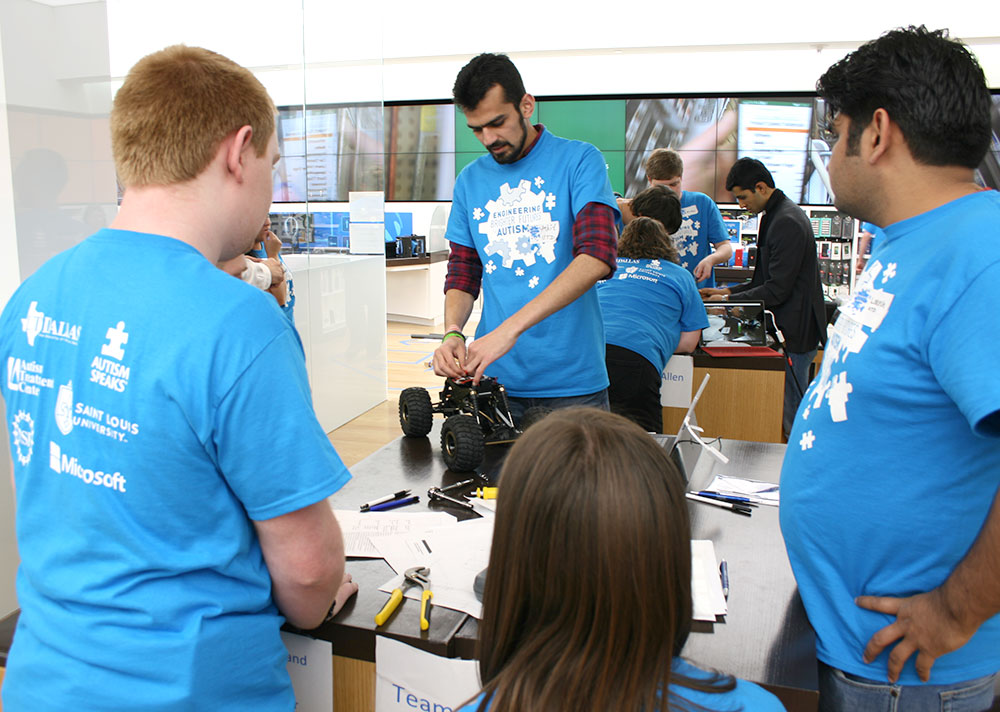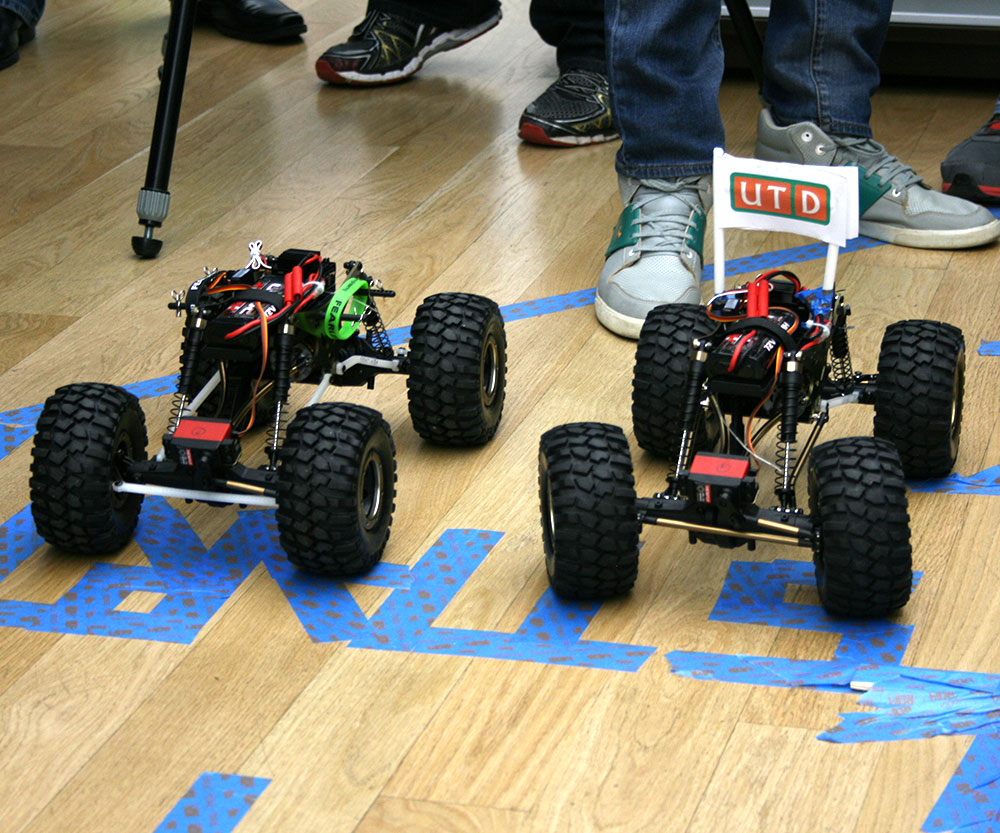
UT Dallas graduate students helped teens with autism build remote-controlled cars during the “Engineering Brighter Futures for Autism” event.
The Erik Jonsson School of Engineering and Computer Science at UT Dallas recently helped area teens with autism improve both their social and engineering skills as part of World Autism Awareness Day.
At “Engineering Brighter Futures for Autism,” more than a dozen teens worked in teams to design, build and test components of remote-controlled cars. The Jonsson School partnered with Microsoft, the Dallas-Fort Worth chapter of Autism Speaks, the Autism Treatment Center of Dallas and Saint Louis University to host the event at the Microsoft store in NorthPark Center.
“Engineering and technology today almost always require working on teams, and through this unique event, participants developed tools that can help them be successful in college and professional work environments,” said Dr. Arif Malik, an organizer of the event and associate professor of mechanical engineering.
“And, as companies such as Microsoft have already recognized, the highly intelligent and creative ways in which employees on the autism spectrum operate can provide an amazing talent pool for transformative new ideas in engineering and the sciences.”
UT Dallas engineering and occupational science students worked with the teens to design and model parts for cars. Mechanical engineering graduate student Sumair Sunny was among those who guided the teams.
“They had little knowledge about how to build the car, but we became totally engrossed in the process,” Sunny said. “It was a lot of fun for everyone. We actually 3-D printed all the components on-site and then assembled everything.”

The completed cars are ready for the obstacle course challenge, which was built by graduate students.
One of the teens tested a completed car by whipping the vehicle with tight turns across the store.
“It handles pretty well,” he said. “These tires give it good traction, too.”
The event was more than just a technical challenge: Participants were scored on how well they worked as a team, sharing valuable information in each phase of the design-build-test competition.
The day’s main event featured a car race over an obstacle course that was built by UT Dallas graduate students. The teams navigated the course, while customers from the Microsoft store cheered.
“Anyone with autism can do amazing things. This project is an example,” said Ashley Taylor, community events manager of the Microsoft store.
Dr. Mark W. Spong, dean of the Jonsson School and holder of the Lars Magnus Ericsson Chair in Electrical Engineering and the Excellence in Education Chair, presented participants with certificates and awards.
“I’m impressed by the performance of the cars,” he said. “I know our founders would be very proud of all you today, too. I hope everyone can visit campus and consider UT Dallas as their choice for college in the future.”
The event also included a viewing of the Sound the Alarm documentary, and a session for the public on learning to code and design games.
The National Science Foundation has provided more than $500,000 to Malik through the CAREER Award program, helping to fund the event.